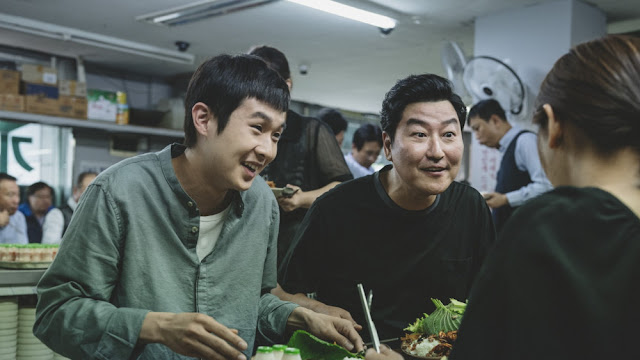 |
| Scene from Little Women (2019) |
The opening of director Greta Gerwig's adaptation of Little Women may sound familiar to those who know a thing or two about Louisa May Alcott. The writer famously had certain conflicts to resolve when publishing the second half of her best-selling novel about The March Sisters. There had to be certain fulfillments that all contemporary publishings had at the time. The most noteworthy was the choice that all female protagonists needed to be either married or dead, and Alcott wasn't having any of that. Still, it was 1868 and the only way to get her work published was to submit to these wills. As a result, later audiences may be confused by what the final chapters hold for spinster archetype Jo March. While the novel was a masterpiece, it was one representative of its time in these respects, showing that while it was about women finding their own agency, they still had to overcome the male-dominated world, where they decided what passed as socially acceptable.
It's why the choice to open the 2019 film as Jo is submitting to the Weekly Volcano (over halfway through the novel) feels like the right way to go. As Alcott's surrogate, it feels like a moment for Gerwig to finally address something that Alcott couldn't. Within her quietness as Mr. Dashwood (Tracy Letts) edits her story to fit his wants, there's a sense that this was how the real-life author dealt with criticism. No matter what she found interesting, there was a man to tear her down. That is the journey of The March Sisters, and every woman in the 19th century in a time where they couldn't own anything and thus needed to find a reason to live. It is why Little Women resonates as more than adaptation. It's one that openly engages with what the text is saying, and even questions it as it relates to Alcott's personal journey to publishing the book. It's metatextual without being cloying, it's empowering without feeling false, and it's incredible in its small achievements. While there may be more direct adaptations, none have addressed why the book continues to be important over 150 years later quite like Gerwig, who to make this film almost feels like the final act of revolt against Mr. Dashwood's critical eye. Everyone watching is laughing at him, even if the conflict still feels prescient in modern culture.















